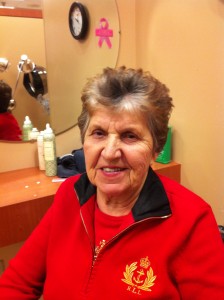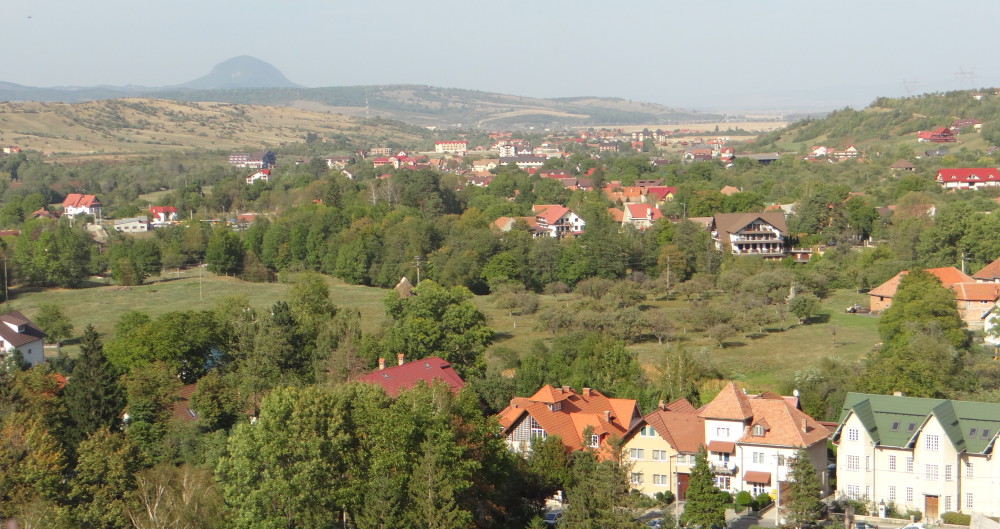 My sweet Mom in better times, 2015
My sweet Mom in better times, 2015
Entering the nursing home, I never know what human drama peppered with dark comedy emerges. It is a life that most Americans turn their eyes and minds away from. The residents are the forgotten sick, disabled, recuperating, and old Americans about whom few dare to whisper. “This is where people go to die,” I was told by a very good friend. “I would never put my mom in such a place.” But this is where people live now and they want dignity and proper medical care delivered with humanity and patience.
It is bad enough that they cease to have an identity, they are reduced to a wing or room number. It is bad enough that they feel trapped and isolated as they no longer have the freedom to do things they’ve always enjoyed. It is bad enough that they spend most of the time alone because the families have long abandoned and forgotten them. It is bad enough that they realize their own mortality and understand that, when they leave, it will be because they’ve passed on. It is bad enough that no one takes them seriously anymore. They’ve lost their dignity as they are no longer able to feed, bathe, and wipe themselves. They depend on the kindness or meanness of someone else who is paid to care for them but often abuse or neglect them.
On the positive side, the residents get medical care, however slowly or quickly, three meals a day that they may not have gotten before; they befriend others in the same position in life, and are forced to participate in activities to stimulate their minds and social skills.
The smell of bodily fluids is overwhelming on most days, even for those used to it. Patients are showered twice a week, some screaming for help because they’ve been bathed last month and they don’t need it again. Some don’t speak English but scream and protest a shower anyway. In their third world countries, it is hard to find water and soap or indoor plumbing, so showers are rare.
There are never enough caretakers to handle the entire floor of patients and some are left to wallow in their feces and urine. It is difficult and time consuming to change diapers on someone who cannot move and many are left for 5-12 hours in beds entirely wet. Even babies scream bloody murder if they are not changed every two hours and are left with a wet diaper too long. Patients develop constant urinary tract infections from such neglect. One caretaker to five patients is not enough help. I don’t know what the margin of profit is for nursing homes but the large fees charged per patient should at least include keeping them clean and dry. It is not easy convincing a 160 pound person to cooperate – much harder than dealing with a 10 pound baby.
A few crafty patients escape through the elevators even though they are coded. One man was chased half way down the road on the side of a very busy highway. A woman was sitting on a bench outside, all dressed up, ready to go for an imaginary job interview. Another patient, who can still dial the phone, calls 911 regularly screaming for help; the police comes and stays outside for a while. It is hard to ignore calls of desperation even from a dementia patient. You never know when the call might be real.
Patients are transported to doctors and left there for hours. Nobody comes back on time to pick them up and some are forgotten. When they are discovered missing, a search ensues. A doctor’s office eventually calls a cab, the patient is delivered back to the nursing home and the nursing home refuses to pay the fare. Mary* suffered such an indignity recently when the cabby threw her wheelchair in disgust on the curb, potentially injuring the patient who was semi-mobile. She did not have the $11 to pay the fare.
There is an ombudsman listed on the wall if a patient needs help or is being abused but who is going to call them? Many patients have been abandoned there by their relatives who only show up once a year, usually around the holidays, to make sure their relatives don’t leave them out of the will.
Many patients are so alone, I’ve never seen anybody visit them in the two years I’ve gone by regularly. I advocate for better care for my mom, but most have nobody to make sure their relatives are properly treated and handled with care and respect.
But some staff members really do care, and it is heartbreaking for them to see their patients die – they are sad and shed tears. Encountering mortality and imagining the end of life for every human being is a very sobering experience. Nobody wants to ever live in such a place, they would rather die suddenly.
Jeremy* is the oldest resident, he has few family members left, his parents, who were his caretakers, have passed on long time ago. He still remembers his previous life and talks in halted speech about his mom’s pancakes.
Barbie* kept packing her bags to go home every day for a year and a half. She was sweet, wondering around other patients’ rooms, asking them if they knew when her daughter was coming to pick her up. She died one day when she stopped eating and drinking. She finally went home to heaven without her packed bags. Yesterday I saw her frilly favorite blanket and other personal possessions in a clear plastic bag in the hallway, waiting to be donated.
A Russian man talks constantly about his homeland, his garden, and his wife, especially how beautiful his town was. Nobody knows what he is saying except me. I hear his voice and my eyes tear up wondering how this man wound up in this particular nursing home, so far away from Russia.
The staff is far away from home too, they are mostly African and Asian transplants. Some speak English well, some don’t. Some are dedicated to their jobs, others could not care less. Those are the ones to watch because they are abusive physically, verbally, and neglectful.
They have coloring activities for people with severe dementia; those patients are kept behind locked doors in a wing sadly named Arcadia. The rest get to play bingo, have coffee socials, outings to Walmart, or a Christmas party and a collective monthly birthday party. Musicians are brought in once in a while to entertain those who still have their faculties but are suffering of other illnesses. A beautiful brown lab wonders the halls and enters certain rooms to let residents pet her. She is old herself, with a bad hip, slowly waddling in pain across the hard linoleum.
There is a beautiful Christmas tree in the lobby but most patients never get to see it as they are never ambulatory. Transport vans come and go, delivering the really sick patients on sudden visits to the ER. Some come back, some don’t.
When a new neighbor passes suddenly, the reality of a corpse behind a closed door across the hallway is a very sobering experience. There was once life there, screaming in pain, now it is silence. I am not sure if the soul has gone to heaven or it’s still hovering over the deceased’s bedridden body.
People screaming in pain become a daily reality. There is no medicine that could take their entire pain away. Such a cocktail of drugs would rob them entirely of their humanity and they would become comatose. Staff nurses can only do so much to alleviate their patients’ pain.
A nursing home visit should be a required part of American high school and college education. No matter how ugly, sad, or cheery, it is a reminder of where we all might wind up someday if we live long enough. It’s a vivid lesson about the frailty of human nature, a lesson that nobody should take their good health for granted, and we should behave decently and morally towards our fellow humans.
*Not their real names

I have to admit that it is the first and only time when I feel almost happy that my parents are no longer alive…
Thank you Ileana for sharing with your article with us!
My dad would have been so disappointed, Cristina, to see what his countrymen’s children are doing. Every young Romanian I’ve met is a die-hard commie globalist. They enjoy living here in America, fat on the hog, but are part of the globalist cabal.